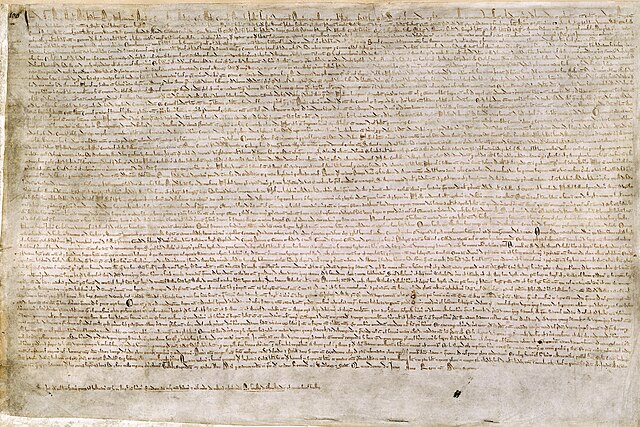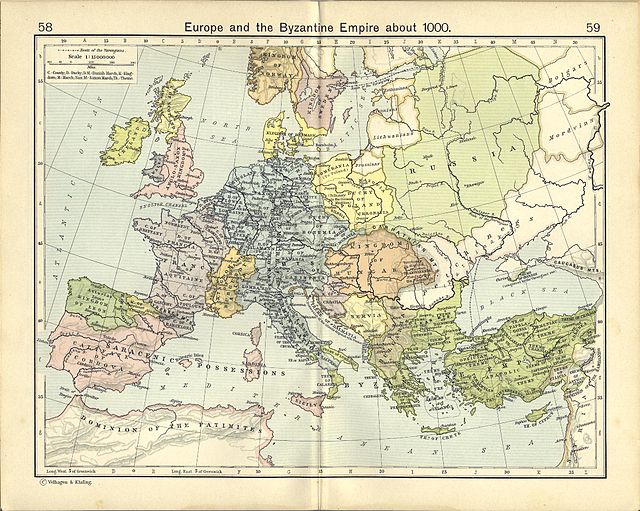Magna Carta Libertatum, commonly called Magna Carta or sometimes Magna Charta, is a royal charter of rights agreed to by King John of England at Runnymede, near Windsor, on 15 June 1215. First drafted by the Archbishop of Canterbury, Cardinal Stephen Langton, to make peace between the unpopular king and a group of rebel barons, it promised the protection of church rights, protection for the barons from illegal imprisonment, access to swift and impartial justice, and limitations on feudal payments to the Crown, to be implemented through a council of 25 barons. Neither side stood by their commitments, and the charter was annulled by Pope Innocent III, leading to the First Barons' War.
Cotton MS. Augustus II. 106, one of four surviving exemplifications of the 1215 text
King John on a stag hunt
A mural of Pope Innocent III, c. 1219
The Articles of the Barons, 1215, held by the British Library
Medieval Latin was the form of Literary Latin used in Roman Catholic Western Europe during the Middle Ages. In this region it served as the primary written language, though local languages were also written to varying degrees. Latin functioned as the main medium of scholarly exchange, as the liturgical language of the Church, and as the working language of science, literature, law, and administration.
Carmina Cantabrigiensia, Medieval Latin manuscript
Europe, AD 1000
An illuminated manuscript of a Book of Hours contains prayers in Medieval Latin.
The Prüfening dedicatory inscription from Bavaria, dated to 1119, composed in Medieval Latin. It was printed rather than carved.








